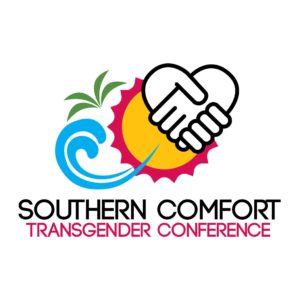The Southern Comfort Transgender Conference was founded in 1991 in Atlanta, Georgia, and has been an exceptional representation of the merit of community building within marginalized populations. The conference aims to serve as a safe space for all LGBT individuals, particularly hoping to provide a secure and inclusive environment in which transgender people and their potential allies may interact in social and educational settings. The conference was held in Atlanta from 1991 until 2014, when it was revealed that the conference would be relocated to Ft. Lauderdale, Florida starting in 2015. Following the 2016 event, the Southern Comfort Transgender Conference was canceled indefinitely, largely due to the conference’s involvement in a financially consuming legal battle. To the surprise of conference-goers and LGBT community members in general, the conference announced its revival in 2017, however due to the devastation of Hurricane Irma in southern Florida, the 2017 event had to be canceled. The conference, which has since been comprehensively redesigned in order to continue facilitating the community cultivation it has always sought to achieve, is set to be held in 2018 from September 6th to September 8th in Ft. Lauderdale.

I was made aware of this conference when I first watched the Southern Comfort documentary in a Gender, Sexuality, and Women’s Studies course last semester. Southern Comfort is a documentary produced by Kate Davis that explores its namesakes’ attendants and their experiences as they pertain to the conference; specifically, Davis zeroes in on the story of Robert Eads, a transman suffering from severe ovarian cancer, and his inner circle of confidants. I was particularly captivated by the intimate connection shared between Robert, his closest friends, and all conference-goers in general. The sense of community and acceptance they had constructed amongst themselves was extremely inspiring, especially in the geopolitical context of the American South, in which there is a notable concentration of conservative and religious citizens which are generally more likely to be unaccepting of the lifestyles of transgender people. It is important to note, however, that the film was created in 2001, and at the time the conference was attended by a primarily white population. As with any progressive movement, the Southern Comfort Transgender Conference has had and will continue to have its flaws and shortcomings, nonetheless, it is an exemplary demonstration of the potency of community development within marginalized populations.
The story of Robert Eads is an excellent, albeit heart-wrenching, example of the institutional denial of sufficient healthcare, among a plethora of other opportunities rights, to transgender people. Diagnosed with ovarian cancer in 1996, Eads sought treatment to eradicate the cancer. He spent the next year attempting to find a doctor or practice that would help him until the Medical College of Georgia agreed to treat him in 1997. At the time Southern Comfort was filmed, the cancer had spread to several of his organs and was essentially insuppressible. The ironic and tragic nature of the death of Eads, a transman, by a cancer of his internal female sexual organs, is a captivating representation of the varied and, at times, harrowing lived experiences of transgender individuals across the United States and entire world. Kate Davis’ superb production has served as an important reminder of the power of the construction of communities within marginalized groups, as is so expertly done with the Southern Comfort Transgender Conference, as well as the injustices, joys, and minutiae of the lived experiences of transgender individuals. Her account of Eads, his inner circle of confidants, and the Southern Comfort Transgender Conference as a whole, aptly capture the essence of the subjects’ lived experiences and the merit of the conference while humanizing the subjects and legitimizing their experiences.


Since its humble beginnings in Atlanta in 1991, the Southern Comfort Transgender Conference has grown substantially in size, influence, and prestige. The event historically has been held at a hotel to ensure that guests are able to participate in all conference activities and experience all the event has to offer without the concern of traveling in or to locations in which they may not feel comfortable or accepted. Conference programming typically involves a combination of educational seminars, social events such as formal dinners and dances, and more recently, health exams under the Robert Eads Health Project, started by his partner Lola Cola following Robert’s 1999 death. The conference had roughly 400 participants per year in the years prior to its 2017 cancellation and maintains its status as the most prominent transgender conference in the United States, largely due to the visibility and publicity engendered by Southern Comfort.
Internal conflict and controversy were largely avoided by the conference’s attendants and leadership until around 2011, when the conference became implicated in the legal battle between Drs. Douglas Ousterhout and Mark Zukowski, medical professionals who both specialize in facial plastic surgery for transgender individuals. This juridical struggle was shrouded from the public until the conference leadership chose to cancel its 2017 event because of the financial losses incurred by the lawsuit. The conference’s liability insurance had covered the extensive legal fees of the suit, however the insurance company chose to drop the conference’s coverage following the conclusion of the legal conflict. Thus, the leadership had to seek a new company by which to obtain insurance, however the only firms that offered coverage to the conference proposed outlandish deals in comparison with the conference’s prior coverage plan, one having an $11,000 premium with a $25,000 deductible. Due to the nature of the settlement reached by all parties involved, the conference leadership has not and likely will not disclose any information that will illuminate more of the conflict and its ramifications, so it is unclear how exactly the leadership reconciled the financial issues in order to attempt to hold the conference in 2017. Although much of the lawsuit, specifically the conference’s involvement, is still ambiguous, it is vital to recognize that the conference maintains its importance as a means of community building, visibility, and education of transgender people and their allies.

Although seemingly unrelated, the lawsuit that plagued both the reputation and pocketbook of the Southern Comfort Transgender Conference and the systematic denial of healthcare to Robert Eads and other transgender people are linked by the common thread of the vulnerability of transgender people, especially in the United States. The oppressive social, political, and economic institutions that govern modern American life continue to subjugate marginalized populations, particularly transgender citizens, in nearly irreversible manners. It is imperative that we acknowledge the ways by which we are socially and legally encouraged to vilify and dehumanize transgender people and organizations which publicly support them. The story of Eads is not in any way unusual or unique; the denial of proper healthcare is an issue that affects people across the larger transgender community and the story of Robert Eads is simply one lived experience of thousands. It is quite possible that Eads would not have died as soon as he did if he had not been denied healthcare by dozens of providers due to governmental and societal institutions that reinforced and incentivized such denial. The insurance companies that refused to provide fairly-priced insurance to the conference following the financial fallout of the lawsuit were not expected nor encouraged to provide such a conference with insurance because of these oppressive societal and governmental institutions. The first step, although a small one, in the process of fundamentally changing and eradicating these institutions is recognizing their existence and being mindful of their implications. These institutions negatively affect all marginalized populations in some manner, and their impact is remarkably malevolent.
The Southern Comfort Transgender Conference, although at times controversial, has been, is, and likely will continue to be more beneficial than detrimental for the LGBT community, especially transgender people. The immense value of having an established community for transgender people to interact safely and advantageously, in both social and more formal, informational environments, far outweighs the minimal drawbacks. It’s important to recognize that although the conference was embroiled in a five-year legal dispute, the nature of the dispute was largely based on the actions of two individuals; the vast majority of conference-goers and the leadership of the conference had no direct part or even knowledge of the dispute. We should not define the Southern Comfort Transgender Conference, as with any other progressive movement or community, by its minor flaws, especially when they do not detract from the overall integrity and worth of the inclusive efforts. Currently, no other prolific conference or community of this sort exists in the American South or the world at large, so I believe it’s extraordinarily important that the conference continues in its new and improved form into the distant future or at least until a better option becomes available for the transgender community. In times as politically perilous and polarized as now, it’s essential that we preserve and encourage the establishment and maintenance of communities and organizations of this kind in order to protect and support marginalized populations and their allies.
I loved reading this article. I had no idea about this Southern Comfort Transgender Conference before this! I grew up in the real south (not Virginia south) so I really understand the importance of a conference like this in a stereotypically unaccepting place. The parts about the legal battle were really interesting as well. I wonder what effect the conference had on the acceptance of trans people as a whole in the south, and possibly if that changed over time as the legal battle continued. Though like you said, I hope it doesn’t, seeing as the dispute is just a reflection of a few people, not the entire conference. This was a really great read! Awesome job!
Before reading your post, I had no idea the Southern Comfort Transgender Conference existed and I am happy to hear that it will be happening (finally) this September. One of the first things I noticed in your blog post title was the phrase “Southern Comfort” and I still think that is just a great way to title the conference. As you mentioned, the South is often noted for its conservative population and with conservative views often comes negative views for LGBT individuals. However, I loved how they used a term for Southern hospitality to show that their organization was a safe and warm place to welcome trans* individuals and allies. I am definitely a bit curious about the lawsuit, and the potential criticism people may have about the conference, yet, after reading your post, I agree with you. Although there is likely improvements to be made, it is so vital to have safe spaces for trans* people and a community which can offer support and a platform for trans* rights.